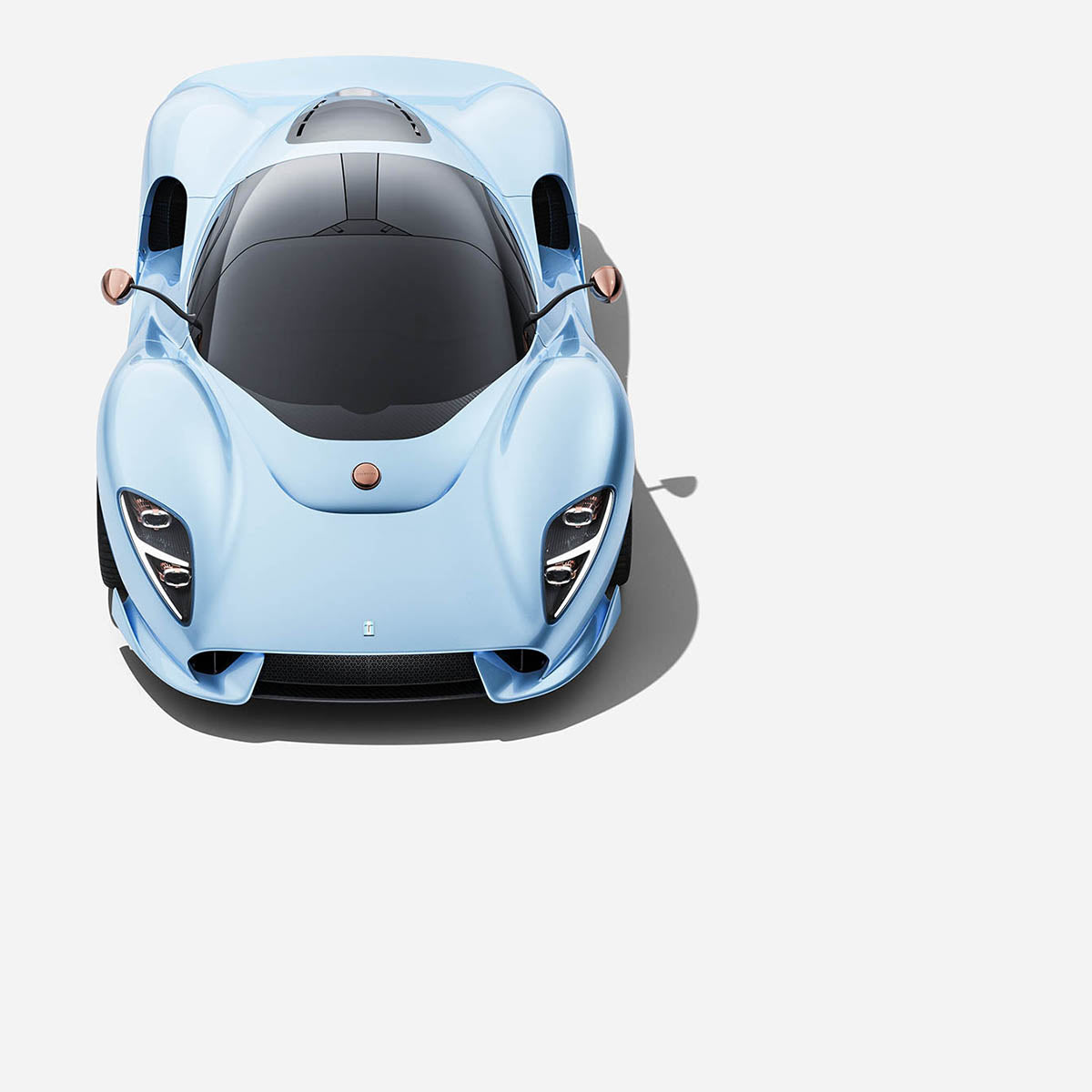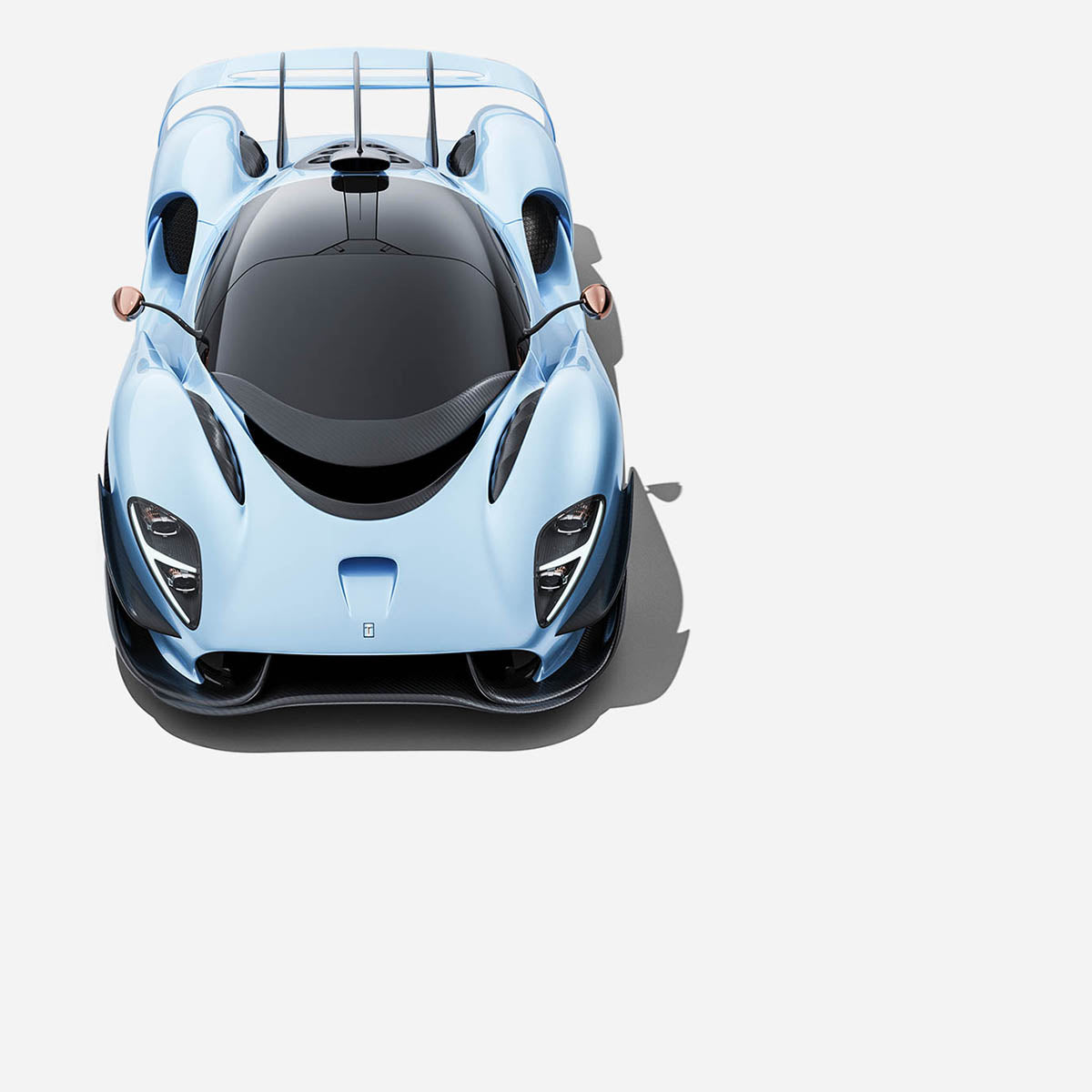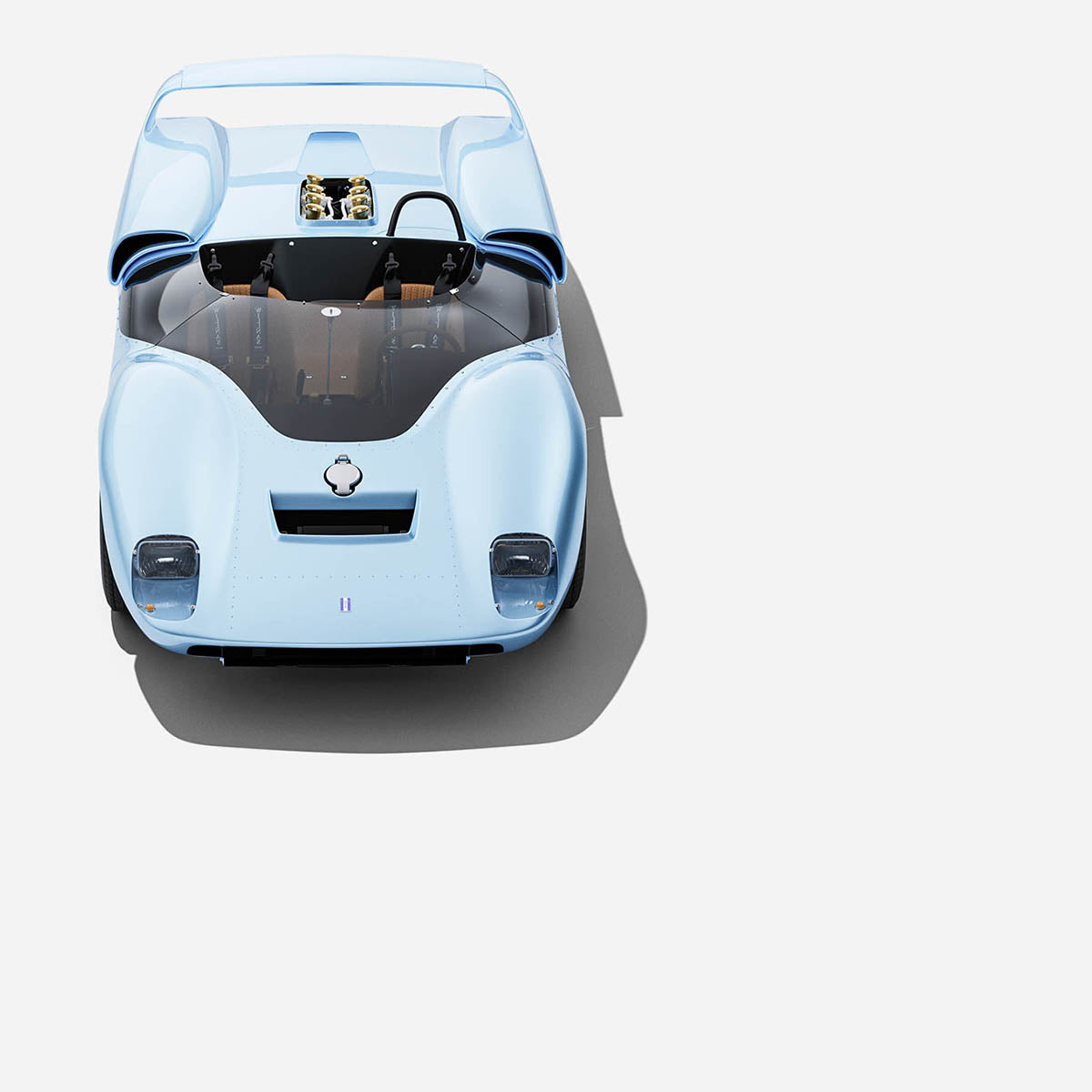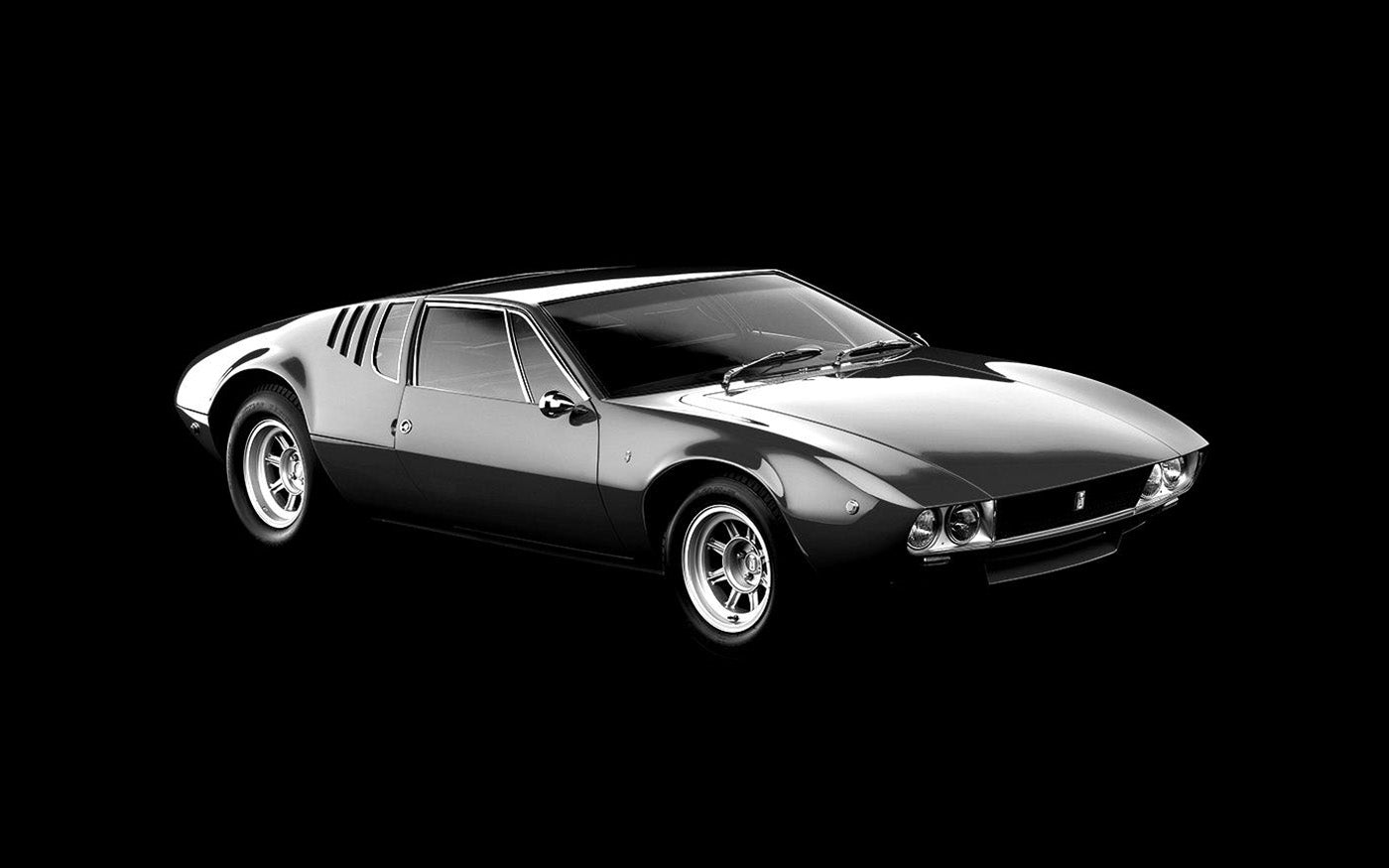The Story
The Mangusta: 1966 — 1971
Back to overviewThe Mangusta was the second production road car produced by De Tomaso. Following the Vallelunga debut, Alejandro realized that he would need to use a different business model to find financial stability for his company. This approach consisted of producing homologated road cars in higher volumes. At this point, Alejandro confident with the initial success of the Vallelunga was ready to truly establish himself on the world stage.
The chassis of the Mangusta has a unique origin; a direct descendant of the 1965 Shelby - De Tomaso P70. Following Carroll Shelby's departure from the P70 program, Alejandro became even more driven to prove himself to the world, and notably Shelby. He turned the now legendary designer, Giorgetto Giugiaro, who at the time was working for Ghia. Giugiaro had a design in-hand that was originally prepared for Iso, but they decided not to use the design as they were not seeking a mid-engine configuration. DeTomaso, the shrewd businessman, seized this opportunity and placed Guigiaro's design onto his the 'spine chassis' chassis of the P70/Sport 5000/ De Tomaso - Ghia 1965 show car.
The Mangusta’s aggressive yet reserved design had many signature features outside of the chassis, which included rear engine covers that used a centrally-hinged "gull-wing" opening sequence to provide access to the engine and rear storage compartment. The interior was designed in the spirit of a luxury grand touring car with supple leather seats and many amenities such as air conditioning, electric windows.
The engine was a race-inspired Ford V-8 mated to a ZF 5-speed transaxle with a limited slip differential. The Mangusta was a performer with a fully independent suspension, four-wheel power-assisted disc brakes and cast magnesium wheels produced by Campagnolo.
The Name
The name also had origins to the Shelby-De Tomaso P70 as after Shelby left the program, Alejandro was quite upset and determined to show Carroll who was "boss". When asked about the name, Mangusta, Alejandro would often state that the Mangusta (Italian for Mongoose) is the only animal that will take on a Cobra snake and win (referring to Shelby's 'King Cobras').
In 1966, the timeless design of the Mangusta debuted at the Turin Show and took De Tomaso and his Ghia design team to the next level on the world stage. Alejandro was finding his footing.
Overview
The Specifications
Engine
- Type: Ford V8 engine (4,728 cc)
- Layout: Mid-engined, longitudinally mounted.
- Aspiration: Naturally Aspirated
- Fuel system: Two valves per cylinder w/ Weber Carburettors
- Power Output: 306 bhp @ 6,100 rpm / Redline 6,800 rpm
- Power Ratio: 65 bhp / litre
Drivetrain
- Body: Fibre-glass
- Chassis: Steel and alloy body on steel backbone chassis with stressed engine
- Front suspension:double wishbones, coil springs, telescopic shock absorbers
- Rear suspension:Lower wishbones, top links, twin trailing arms, coil springs, telescopic shock absorbers
- Steering: Rack-and-pinion
- Gearbox: 6 speed Manual
- Brakes: Disc (fr/r)
- Drive: Rear-wheel drive
Dimensions
- Weight: 1,300 kilo / 2,866 lbs
- Length / Width / Height: 4,275 mm (168.3 in) / 1,834 mm (72.2 in) / 1,100 mm (43.3 in)
- Wheelbase / Track: 2,500 mm (98.4 in) / 1,394 mm (54.9 in) / 1,450 mm (57.1 in)
- Fuel capacity: 60 Litre (15.9 Gallon)
- Tyres: (fr/r) 185 HR 15; 225 HR 15
Performance
- Power to weight: 0.24 bhp / kg
- Top Speed: 250 km/h (155 mph)
- 0-60 mph: 5.9 s
- 0-100 mph: 13.7 s
- Type: Ford V8 engine (4,728 cc)
- Layout: Mid-engined, longitudinally mounted.
- Aspiration: Naturally Aspirated
- Fuel system: Two valves per cylinder w/ Weber Carburettors
- Power Output: 306 bhp @ 6,100 rpm / Redline 6,800 rpm
- Power Ratio: 65 bhp / litre
- Body: Fibre-glass
- Chassis: Steel and alloy body on steel backbone chassis with stressed engine
- Front suspension:double wishbones, coil springs, telescopic shock absorbers
- Rear suspension:Lower wishbones, top links, twin trailing arms, coil springs, telescopic shock absorbers
- Steering: Rack-and-pinion
- Gearbox: 6 speed Manual
- Brakes: Disc (fr/r)
- Drive: Rear-wheel drive
- Weight: 1,300 kilo / 2,866 lbs
- Length / Width / Height: 4,275 mm (168.3 in) / 1,834 mm (72.2 in) / 1,100 mm (43.3 in)
- Wheelbase / Track: 2,500 mm (98.4 in) / 1,394 mm (54.9 in) / 1,450 mm (57.1 in)
- Fuel capacity: 60 Litre (15.9 Gallon)
- Tyres: (fr/r) 185 HR 15; 225 HR 15
- Power to weight: 0.24 bhp / kg
- Top Speed: 250 km/h (155 mph)
- 0-60 mph: 5.9 s
- 0-100 mph: 13.7 s








